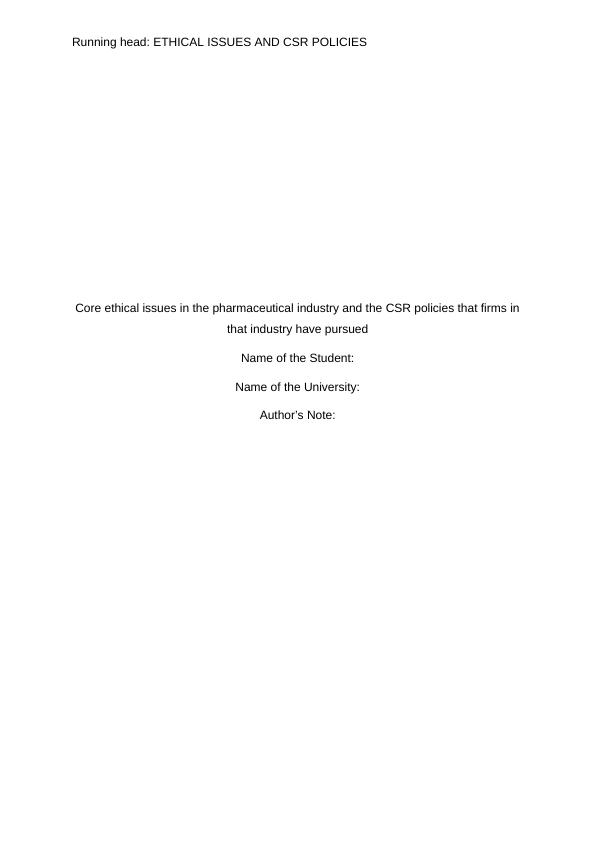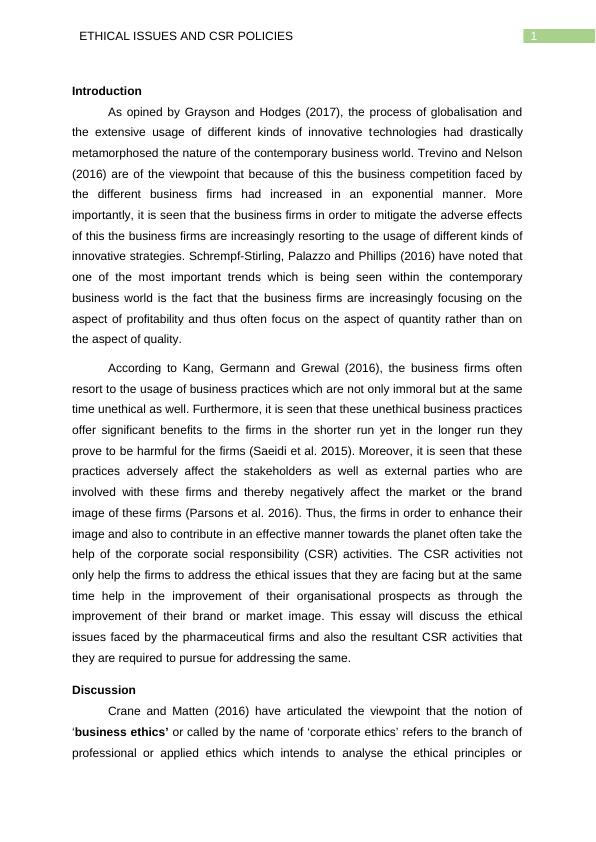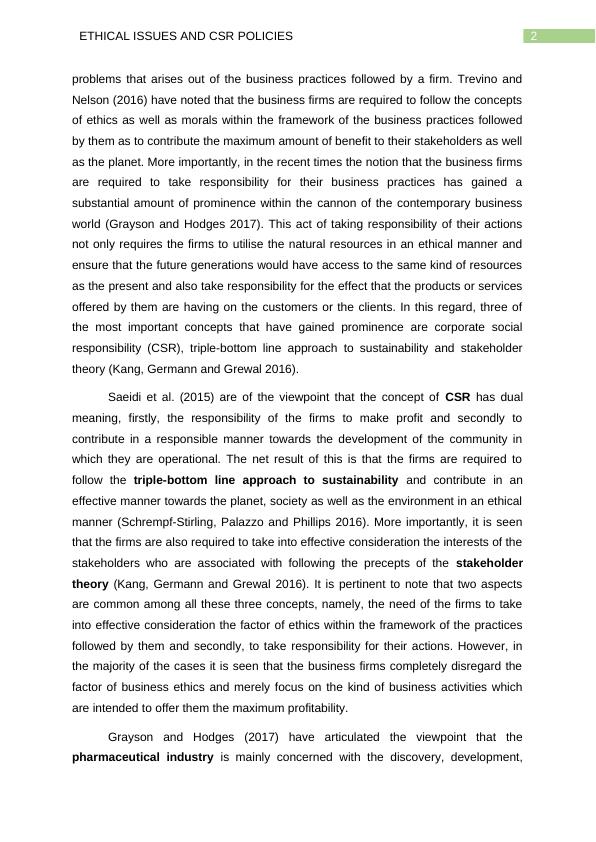Ethical Issues and CSR Policies in Pharmaceutical Industry
Exploring the core ethical issues in the pharmaceutical industry and analyzing the CSR policies implemented by firms in that industry.
10 Pages3233 Words269 Views
Added on 2023-04-06
About This Document
This essay discusses the ethical issues faced by pharmaceutical firms and the CSR activities they pursue to address them. It explores the impact of unethical practices and the importance of corporate social responsibility in the pharmaceutical industry.
Ethical Issues and CSR Policies in Pharmaceutical Industry
Exploring the core ethical issues in the pharmaceutical industry and analyzing the CSR policies implemented by firms in that industry.
Added on 2023-04-06
ShareRelated Documents
End of preview
Want to access all the pages? Upload your documents or become a member.
Unethical practices of Pharmaceutical companies in USA
|9
|4416
|282
Importance of Business Ethics for Corporations: Factors, Benefits, and Challenges | Desklib
|15
|3528
|68
PROMOTING CORPORATE SOCIAL RESPONSIBILITY.
|10
|3344
|3
Ethical Leadership: An Analysis of the Case Study
|18
|5256
|2
Globalization and Corporate Social Responsibility Issues
|17
|5515
|255
Ethical Learning Organization
|14
|3408
|500



